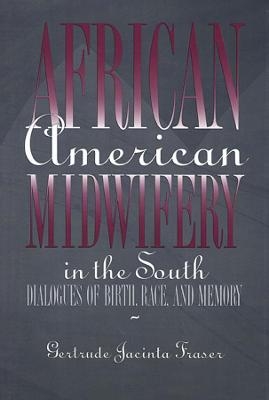
African American Midwifery in the South
Dialogues of Birth, Race, and Memory
Seiten
1998
Harvard University Press (Verlag)
978-0-674-00852-6 (ISBN)
Harvard University Press (Verlag)
978-0-674-00852-6 (ISBN)
Fraser shows how physicians, public health personnel, and state legislators, beginning at the turn of the century, mounted a campaign ostensibly to improve maternal and infant health, especially in rural areas. They brought traditional midwives under the control of a supervisory body, and eventually eliminated them.
Starting at the turn of the century, most African American midwives in the South were gradually excluded from reproductive health care. Gertrude Fraser shows how physicians, public health personnel, and state legislators mounted a campaign ostensibly to improve maternal and infant health, especially in rural areas. They brought traditional midwives under the control of a supervisory body, and eventually eliminated them. In the writings and programs produced by these physicians and public health officials, Fraser finds a universe of ideas about race, gender, the relationship of medicine to society, and the status of the South in the national political and social economies.
Fraser also studies this experience through dialogues of memory. She interviews members of a rural Virginia African American community that included not just retired midwives and their descendants, but anyone who lived through this transformation in medical care--especially the women who gave birth at home attended by a midwife. She compares these narrations to those in contemporary medical journals and public health materials, discovering contradictions and ambivalence: was the midwife a figure of shame or pride? How did one distance oneself from what was now considered "superstitious" or "backward" and at the same time acknowledge and show pride in the former unquestioned authority of these beliefs and practices?
In an important contribution to African American studies and anthropology, African American Midwifery in the South brings new voices to the discourse on the hidden world of midwives and birthing.
Starting at the turn of the century, most African American midwives in the South were gradually excluded from reproductive health care. Gertrude Fraser shows how physicians, public health personnel, and state legislators mounted a campaign ostensibly to improve maternal and infant health, especially in rural areas. They brought traditional midwives under the control of a supervisory body, and eventually eliminated them. In the writings and programs produced by these physicians and public health officials, Fraser finds a universe of ideas about race, gender, the relationship of medicine to society, and the status of the South in the national political and social economies.
Fraser also studies this experience through dialogues of memory. She interviews members of a rural Virginia African American community that included not just retired midwives and their descendants, but anyone who lived through this transformation in medical care--especially the women who gave birth at home attended by a midwife. She compares these narrations to those in contemporary medical journals and public health materials, discovering contradictions and ambivalence: was the midwife a figure of shame or pride? How did one distance oneself from what was now considered "superstitious" or "backward" and at the same time acknowledge and show pride in the former unquestioned authority of these beliefs and practices?
In an important contribution to African American studies and anthropology, African American Midwifery in the South brings new voices to the discourse on the hidden world of midwives and birthing.
Gertrude Jacinta Fraser is Associate Professor of Anthropology, University of Virginia.
Acknowledgments Prologue I. The Body Politic 1. Introduction 2. Midwives and the Body Politic 3. Race and Regulation 4. Race and Mortality II. Authoritative Knowledge 5. Nurses and Midwives in the Classroom 6. The Logic of Prenatal Care III. Memory and Experience 7. On Silence and Memory 8. Changed Bodies, Changed Communities 9. The Social Context of Midwifery 10. Pregnancy and Birthing 11. The Postpartum 12. Conclusion Notes References Index
| Erscheint lt. Verlag | 30.12.1998 |
|---|---|
| Verlagsort | Cambridge, Mass |
| Sprache | englisch |
| Maße | 156 x 235 mm |
| Gewicht | 572 g |
| Themenwelt | Geisteswissenschaften ► Geschichte ► Regional- / Ländergeschichte |
| Medizin / Pharmazie ► Gesundheitsfachberufe ► Hebamme / Entbindungspfleger | |
| Medizin / Pharmazie ► Gesundheitswesen | |
| Naturwissenschaften ► Biologie ► Humanbiologie | |
| Naturwissenschaften ► Geowissenschaften ► Geografie / Kartografie | |
| Sozialwissenschaften ► Ethnologie | |
| Sozialwissenschaften ► Soziologie | |
| ISBN-10 | 0-674-00852-9 / 0674008529 |
| ISBN-13 | 978-0-674-00852-6 / 9780674008526 |
| Zustand | Neuware |
| Haben Sie eine Frage zum Produkt? |
Mehr entdecken
aus dem Bereich
aus dem Bereich
Erinnerungen
Buch | Softcover (2024)
Pantheon (Verlag)
16,00 €
Universalgelehrter, Polarreisender, Entdecker
Buch | Hardcover (2024)
mareverlag
28,00 €


